It’s been a hit on the festival circuit ever since its SXSW premier earlier this year, and finally The Peanut Butter Falcon makes its way to cinemas across the United Kingdom. Just prior to this, the writer/director duo of Tyler Nilson and Michael Schwartz were in London for the film festival, and it was here we took the opportunity to sit down with them and speak about this charming indie drama. They discuss the representation of down syndrome in cinema, and how this whole project was fuelled by the unique life perspective of their leading man Zack Gottsagen. They also comment on their collaboration with Shia LaBeouf, and what it was like to direct Bruce Dern.
The film is brilliantly creative, it’s such an original concept – where did this idea come from?
Michael Schwartz: That’s a compliment, thank you. We really wanted to write a story for Zack, we knew him for three years and knew him pretty well, and he’s got his own approach to life which is pretty unique, his own confidence and his own lens. The thought of dancing around a bonfire drinking whiskey is kind of what we do, the wrestling element is really authentic to Zack, we travelled around with him for a year writing the script, and he likes wrestling so wanted to work that into the story. The landscape is such a character and that’s where Tyler is from, so we knew that really well and we wanted boats and water and marshes to have a big impact on the story, so it all worked together.
Tyler Nilson: A lot of the story came from what we could get for free. A lot of my hometown because we could get boats for free, so we wrote that in, it’s almost about what we had.
There’s a real charm to that DIY approach, do you enjoy that? I’m putting words into his mouth completely, but I imagine for someone like Ryan Coogler, he has all the tools available to him for Black Panther but I bet he does miss the Fruitvale Station means of storytelling.
TN: I love it, the duct tape approach. Even if you have tools, like we had tools, we had Shia and wonderful actors, I still wanted the raft to feel like it was hand-built, I wanted the film to feel hand-built. We wrote it, directed it, we were heavily involved in the edit, we wrote music for it, our aesthetic is DIY.
MS: There’s almost a dustiness, even in the colour of the film, we wanted to make it feel dusty. We got into the room with the art department for the first time, and we said we wanted everything to feel like it might give you Tetanus. There’s a rustiness to it. We had materials made out of cardboard and duct tape, because that’s what this world feels like.
It had the feel of early Kings of Leon. Before they got into their stadium rock phase.
MS: Oh that’s interesting, because music for me is vital. Over-produced music is such a bummer.
TN: I want a four-track, I want to hear the tape rolling.
MS: That’s a really good comparison.
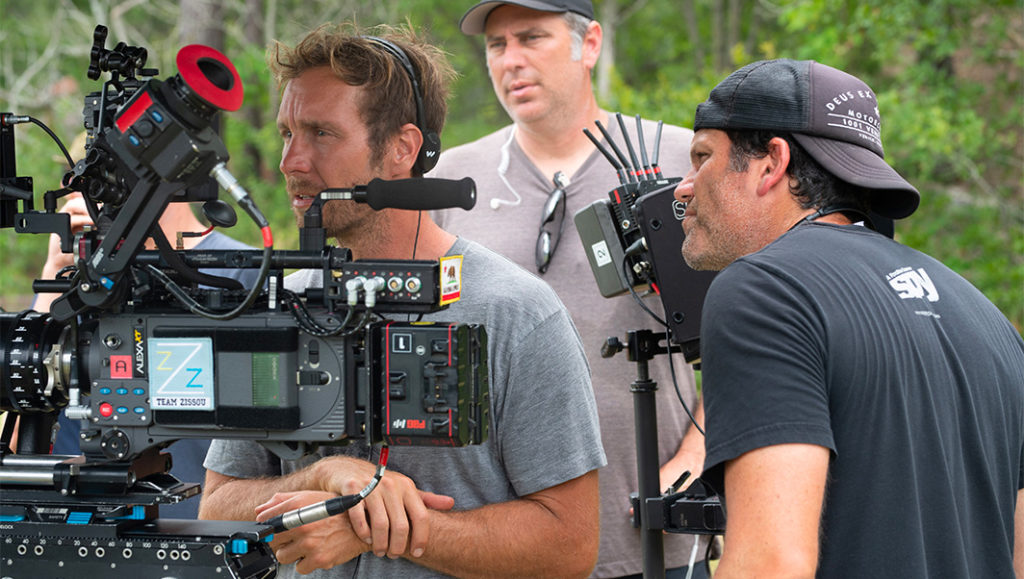
Zack has always wanted to be an actor, in the film his character wants to be a wrestler – were there parallels between his journey in real life and the character, and did you utilise that?
TN: Yeah I think it came out in the writing. We wanted Zack’s frustrations and hopes and dreams to be there. But yeah I think all good art, actually I don’t wanna say anything stupid like that.
It’s too late now.
TN: [Laughs] A lot of good art comes from parallels from real life, so there’s a lot of stuff that feels really real.
MS: We had a screening in LA and there was a Q&A afterwards with Zack and Shia and a couple of the producers, and Zack got really open about his frustrations and how people didn’t believe in him when he was in high school and nobody thought he could ever do anything and he wanted to prove them wrong. There’s this power and vulnerability and frustration that he has as a person which isn’t typically shown in a character with a disability and we showed that in the beginning in the way he’s treated in the retirement home. So there are these parallels that felt authentic. Him doing a good job as an actor was like being in the ring, he’s amazing.
TN: Shia’s character simply watching that happen was a lot like us getting to watch Zack win awards, or watch him win, we get to sit back in awe.
It offers a very honest take on people with down syndrome, and in the film Zack can be a bit of a dick. Which is good. He’s a human being, he’s flawed, and we see that.
MS: We really just wanted to show our friend Zack. We don’t have this expansive knowledge of people with disabilities, so it was comforting to know that our relationship with Zack has been smiled upon but we didn’t want to change anything. We had lots of foundations all say it’s great and it’s the best they’ve ever seen down syndrome representation, which felt really good because it meant the way we know our friend Zack is respected and smiled upon.
TN: It’s also interesting because Zack is our friend and he happens to have down syndrome, so when we were writing it wasn’t a big deal, but to hear people say we represented him well, I guess we didn’t even think about it.
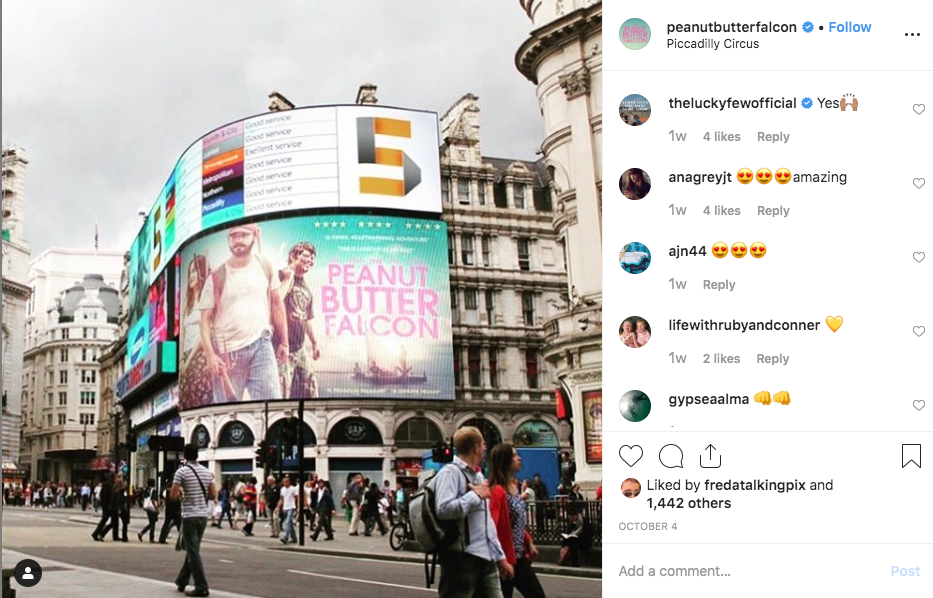
It shows how well you know him.
TN: Yeah, and we just know him as a human. We didn’t tell a sob story. I know him as a human being who happens to have down syndrome, not as a down syndrome human being.
He’s brilliant in the lead role, and part of the film’s charm in that he’s new to this, because the character experiences so many new things. But what are the challenges that come with having an untrained actor as the lead role in your movie?
TN: He trained, but in a different way. He studied acting in secondary school and college, he was an usher in a movie theatre so he could be close to performances. So he was trained in a way. But I don’t think Zack is the kind of actor you want to hit a mark and say a line. I also don’t think a lot of actors are like that, I think if you want authentic performance form any actor it feels much nicer when you just chase them with a camera and let them do what feels right, to stick to truth more than camera and focus. It just do happened that he’s better when cut loose, and we’re the type of guys who like to cut people loose. So it wasn’t so much of a challenge, but if we had wanted to shoot this with marks and with a very certain aesthetic it would’ve been more of a challenge, but that’s just not who we are, and Zack fits into our world very well, just like we fit him very well.
MS: Also our job as directors is to put everyone in their best position to do well. Shia very early on said ‘please don’t make me hit marks’. So we worked the cameras so they didn’t have to hit marks, because the performance was very important, so we’d figure it out. We were able to support all the actors in a really cool way.
This sounds like an odd thing to say given he’s so renowned, but I think Shia is an underrated actor. You must’ve been thrilled to have him on board? Because he’s someone who gives it everything when he signs on to a project.
MS: Everything.
TN: Still to this day, we’ll do surprise Q&As for 20 people and he’s riding with us. He gave us absolutely every part of himself and of course we were thrilled. I almost don’t think he’s underrated, I just think he’s overlooked. Because people know.
MS: When you talk about Shia LaBeouf universally people know he’s a genius. I think he’s just not talked about enough. So yeah really grateful to have him.
TN: He taught us a lot too, it was our first time directing.
MS: He came in and he was like ‘my guy wears a red shirt and he wears crocs’. Tyler grew up there and was like, that’s not what your guy wears.
TN: Yeah it should be white shirt, boots kind of look.
MS: We had a lot of these intense conversations. He was like ‘my guy smokes because that’s what my guy doesn’t. But we said he couldn’t afford cigarettes, and he came back the next day and said, ‘my guy finds cigarette butts on the grounds and rolls them up with leftover tobacco’. And we were like, you fucking genius. That is what your guy does.
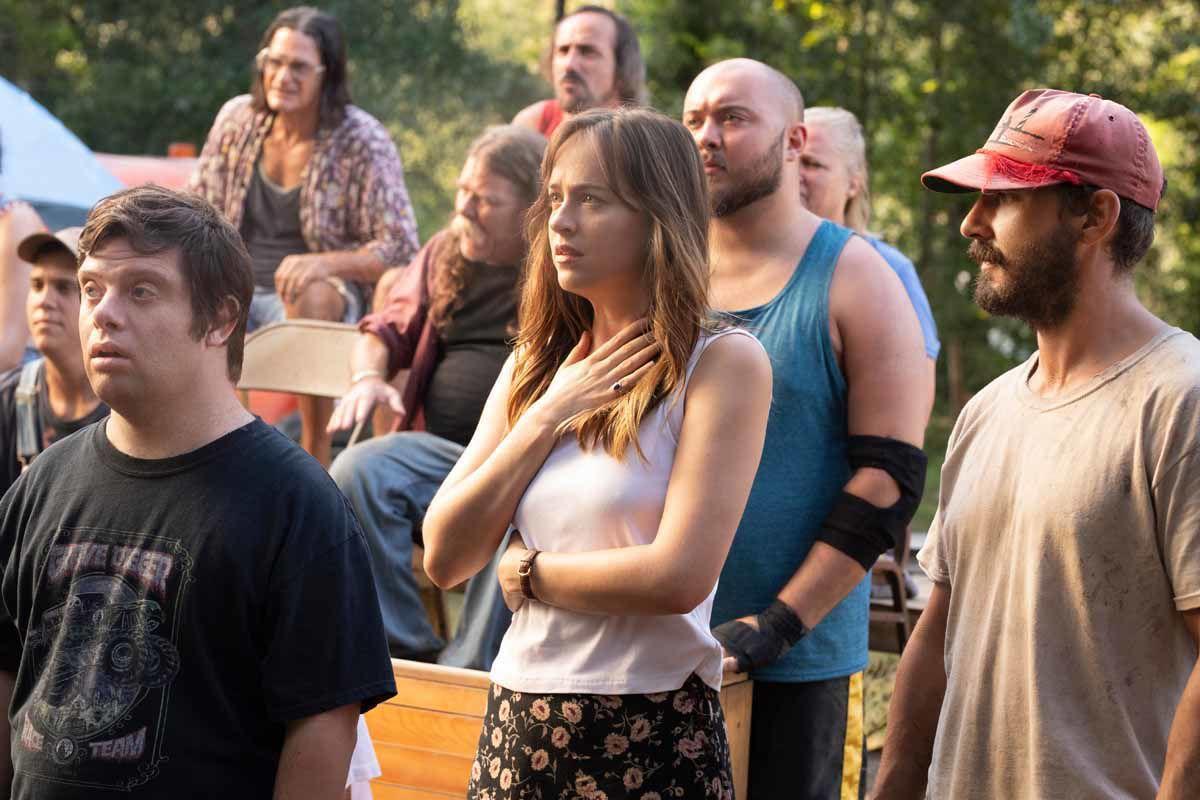
Ben Foster was originally attached to the project, you spoke before about the DIY aspect, have you now embraced the notion of happy accidents? Because I couldn’t now imagine the role belonging to anyone but Shia.
TN: Same, totally.
MS: Everything happens exactly as it’s supposed to happen. We had Ben Foster, we had Josh Brolin. It’s a gift, we went through about six months of prep with Ben and then his wife got pregnant and he wasn’t able to do it, and then he actually called Shia, he’s the one who thought he’d like it. Then Shia FaceTimed us and said he wanted to make a movie with us and we were like, holy shit.
Josh Brolin was attached?
MS: Josh Brolin was going to play the Saltwater Redneck.
The cast is amazing, there’s also Dakota Johnson, John Hawkes, Jon Bernthal, Bruce Dern. You guys strike me as big fans of cinema, how was it directing Bruce Dern?
MS: You know we almost didn’t have time on set to appreciate it. It was all so immediate. But I look back now and think, holy shit, Bruce Dern is in our movie. But at the time it felt very natural.
TN: I love those actors, but I don’t fanboy hard. I look at actors and think of them as being like a phenomenal paint brusher. I don’t idolise a lot of actors. But to be honest if we worked with McConaughey there would be moments like that. Dakota is interesting because people know her from Fifty Shades of Grey but we knew her from Black Mass. It’s such a great performance in that movie. It’s not like we were coming in thinking, ‘it’s Dakota Johnson!’ I saw her as a great character actor from Black Mass, she’s special.
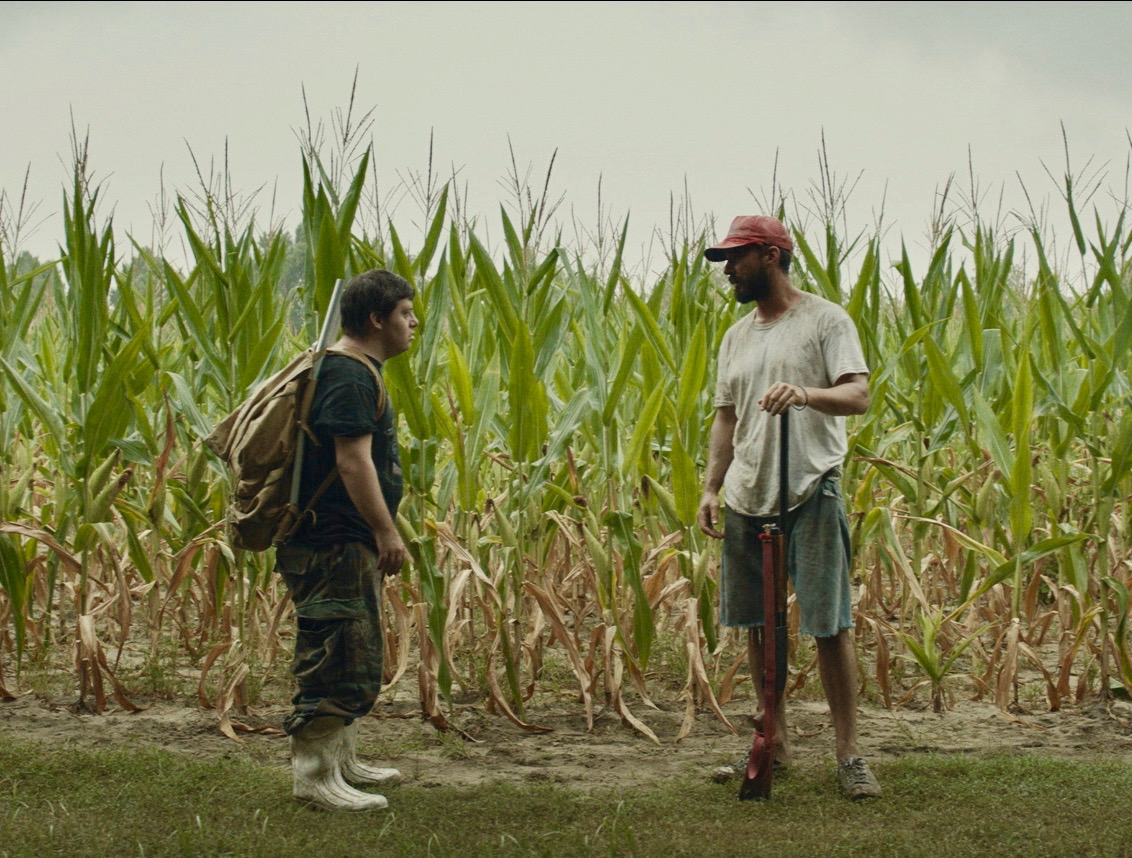
Tell me about the process. I have this romantic idea of two writers sitting in a dark room with cigar smoke in the air and a paper bin full of discarded ideas. But what’s it really like collaborating as two people on a screenplay?
TN: We were in a room, with cigar smoke, and we kept throwing away pieces of paper. No, we work really uniquely, we’re always working and we’re always approaching each project differently. With this one we would go on like 20 to 30 to 40 mile walks, and just talk. Because there’s something about the exercise element that shuts off the part of your brain that is thinking illogically. One part if thinking, left foot, right foot, and then the other part has this beautiful ability to just sort of dive into the ethers of creativity, so we would go on seven day bike rides, or 20 mile walks, or just go and hike for a week. Just talking about stories. Eventually it will find its way into script form, and usually we also have a big table or wall that we draw on, and slowly and surely it all finds its way into that structured form.
MS: There’s a lot of talking. It’s about knowing the character. Like with Dakota, when we first wrote that we thought, Eleanor is a widow. It was a big story point but we ended up leaving that behind and it never got written that she was a widow. Then Dakota sat down the first day and was like, I think Eleanor is a widow.
She said that of her own volition?
TN: Yeah, and we were like, that is exactly what this character is. Why don’t we go back and add that in and figure something out. So that scene on the pier? She wrote that scene, because we wanted to give her the space to bring something to that scene that was hers, so she wrote it and brought it to us.
Going back to Zack, I’m hoping this will lead on to more performances from him – do you think Hollywood is accessible for him right now? And how important then is it that films like yours exist.
TN: I think it’s obviously very essential, because we’re showing it can be done. I’ve not seen it done on a scale like this, usually it’s Tom Hanks or Leonardo DiCaprio doing a role, so it is important. I think our film is, and will continue to open doors for people with different and special abilities.
MS: To add to that, that our film makes money is going to open doors. If you make a film that is gonna be great about somebody with disabilities, you still hear a lot that they can’t market it, they say you can’t make money doing that. So we need to show that there was a movie with authentic representation of disability in a main role, and it made money, then people may want to do more.

So what is next?
TN: We’re still super deep in this film, and really experiencing a lot of gratitude from people in the UK who are enjoying it. But we’ve written a TV show with Margot Robbie’s company Lucky Chap that we’re going out to pitch this winter, and we have a movie in production and we’re excited about an award’s push, I just got on Twitter a few months ago and it’s fun to search Peanut Butter Falcon, and people are saying Zack deserves to be nominated for an award, so we’re excited about the possibility of that being a reality.
It must’ve been a surreal year for you both?
TN: Best year of my life so far, for sure. It’s been phenomenal, and I’m really grateful that even last week we became financially the number one platform film in America this year. I’m really grateful people are seeing it, so yeah, it’s been wonderful.
MS: Yeah, same.

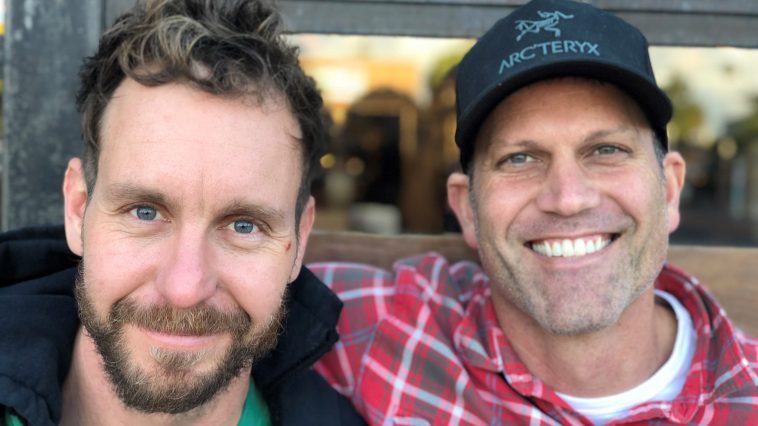

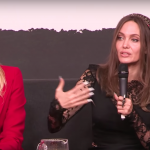



















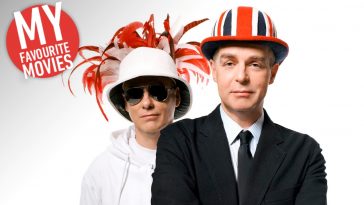


Leave a Comment